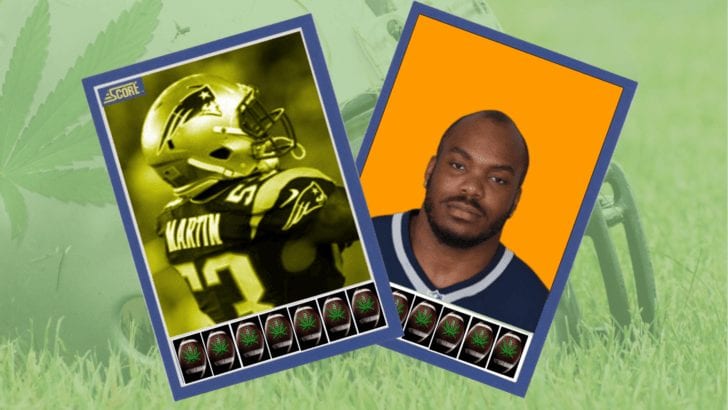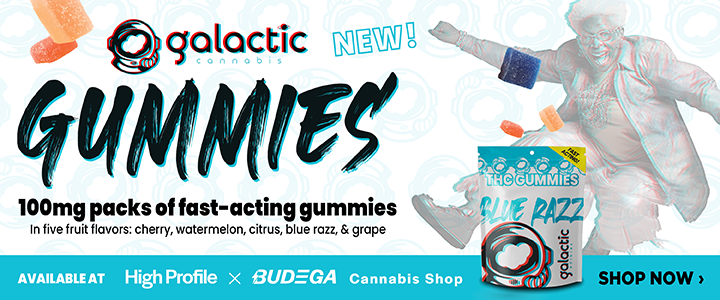
Former New England Patriots player Eric Martin didn’t use cannabis in high school. His parents believed the stigma that it was a gateway drug and forbid it. When he got to college, he tried it and quickly discovered it wasn’t just fun—it helped him play football.
“After football games I just wanted to relax, but sometimes I couldn’t because my body was so sore,” Martin says. “Cannabis relieved the pain and helped me rest.”
He wasn’t alone. Many of his fellow players used cannabis to recover after playing. While nobody hid that fact, it wasn’t something they broadcast.
“It was pretty common, but you didn’t want to have a stoner reputation,” Martin recalls
In his post-football career, Martin is now speaking up about his advocacy, as well as eyeing several business opportunities. He’s had his mind on sports recovery through cannabis for some time.
Beyond physical recovery, cannabis also helped Martin deal with stress, which was intense in the National Football League (NFL). As a free agent, he was contracted to a total of four teams in three and a half years: the Toronto Argonauts (2016-2017), New England Patriots (2014-2015), New Orleans Saints (2013), and the Cleveland Browns (2013-2014).
“I was always fighting for a spot,” he says. “Contracts can be game to game. You know what players say NFL stands for now? Not For Long.”
But it was the everyday physical trauma to his body that spurred Martin to rethink his career path. To give some perspective, football practices can entail anywhere from 100 to 200 plays a day of smashing into 300-pound guys. Frequent hits to the head can cause chronic traumatic encephalopathy, a debilitating brain disease that can lead to memory loss, impaired judgment, aggression, depression, and eventually dementia. Martin knew all of this and, after his third major concussion, decided it was time to retire at 26 years old.
It’s common for players to leave football while still young. According to the NFL Players Association, the average career length is only 3.3 years. One might surmise that the physical toll football takes on players convinces many to leave.
To reduce pain and keep players in the game, NFL doctors often distribute opioids. Still, many players believe that such hard drugs only mask damage, while cannabis and other natural aids can help their bodies heal.
Science backs them up. Cannabis researchers have found that the plant helps heal the brain after acute trauma. It also alleviates pain and can reduce the risks from opioid use. In one move toward awareness, the group Doctors For Cannabis Regulation teamed up with the nonprofit Athletes for Care to educate people and sent an open letter to the NFL explaining why cannabis should be taken off the list of “prohibited substances.”
The greater acceptance of cannabis in mainstream society has emboldened athletes from football and other sports to speak out about their use of cannabis to self-medicate. Examples of former and current athletes that have gone public about cannabis: Ricky Williams, Eugene Monroe, Derrick Morgan, Nate Jackson, Even Britton, Nick Diaz, Ronda Rousey, Floyd Landis, Jim McMahon, Avery Collins, Rob Van Dam, Jay Williams, Cliff Robinson, Riley Cote, and many others.
Some say there is only so much the NFL can do while cannabis is still federally illegal. Nevertheless, there is some apparent hypocrisy since the league and individual teams combined accept tens of millions of dollars each season from the alcohol industry.
Martin is excited about entering the legalized cannabis industry in Mass. Among other initiatives, he hopes to create a line of CBD edibles that are specifically for athletes and their needs. He’s imagining shakes, pills, and power bars. Cannabidiol (CBD) is a cannabinoid in the cannabis plant that is non-psychoactive. Research has shown CBD has analgesic, anti-inflammatory, and anti-anxiety properties. Many athletes are using CBD oil and edibles to stay focused, relieve stress, sleep, and heal their joints and muscles. Last September, the World Anti-Doping Agency announced that CBD will no longer be banned from use by athletes, effective January 1, 2018.
It’s great news for cannabis entrepreneurs like Martin.
“Right now, what’s out there are edibles for building muscle,” he says. “But there isn’t as much for healing. That’s where CBD comes in.”
























